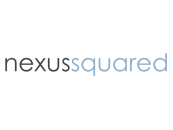
SocGen, Santander & 73 Banks Join JPMorgan’s Blockchain Battle Against Fintech
by Fintechnews Switzerland September 27, 2018JP Morgan’s ambitious Ethereum-backed blockchain project, the Interbank Information Network (IIN) gains 70 additional banks, including France’s Société Générale and Spain’s Santander.
This brings the number of large banks on the network up to 75.
The IIN is a collaboration between JPMorgan, Royal Bank of Canada and New Zealand Banking Group (ANZ}. The 11-month experiment looks into blockchain’s potential in obliterating the difficulties in cross-border payments—and speed up an otherwise error-prone process that would be bogged down by compliance checks.
Interbank blockchain projects have been all the rage lately. IBM and CLS are attempting to bring the disparate financial sector together under one unified blockchain, and just earlier this month, Kasikornbank, a major Thai bank has joined a blockchain-based Visa business-to-business (B2B) connect program for cross-border payments.
Once a disruptive platform for the renegades of the economy, global banks are now feverishly plugging blockchain into various aspects of their operations. In fact, the 75 banks now on board JPMorgan’s blockchain have been described as ‘hungry’ for the blockchain that JPMorgan has to offer.
Desperately keeping ahead of fintech firms.
In an interview with Financial Times, JPMorgan banks analyst Jason Goldberg said that:
“Payment is one of the segments banks worry about most about in terms of ceding to non-bank competition. Blockchain is a way to keep more of that [business] in-house.”
Emma Loftus, Head of Global Payments and FX in JPMorgan opined that:
“IIN will enhance the client experience, decreasing the amount of time—from weeks to hours—and costs associated with resolving payment delays.”
“Blockchain capabilities have allowed us to rethink how critical information can be sourced and exchanged between global banks.”
The slow process and high fees of cross-border banking have been a fertile ground for fintech companies like Revolut, Ripple and TransferWise to rise and gain dominance in the fintech sphere. Processing global payments is usually a complex endeavour for banks, as multiple layers of communication occur amongst payment participants to verify and process transactions.
By bringing on board a plethora of large-scale banks, IIN hopes to significantly reduce the number of middlemen needed to respond to compliance and other data-related inquiries that delay payments.
According to JPMorgan, other correspondent banks are expected to join in the coming months.
If successful, this blockchain push by JPMorgan could put banks back on the future roadmap for payments and cross-border transfers. However, the question remains—will users return to the arms of banks, or do payment fintech firms have something more to offer them?
What is certain is that it’s not just the banks that are taking notice.
In other recent news, a federal agency in Australia called Red Belly Blockchain has just completed testing on a global blockchain network that they claim can process 30,000 cross-border transactions per second. The company thinks that this could solve scalability issues in blockchain, and is currently developing more features. Meanwhile, Switzerland and Israel are going to compare notes on blockchain regulation, with Switzerland gunning for implementation by 2020.
Featured image via JP Morgan






